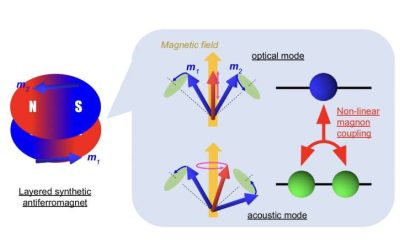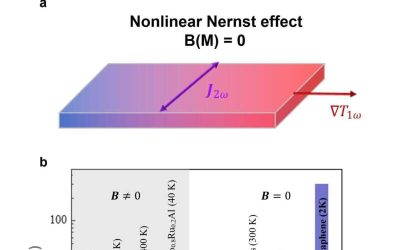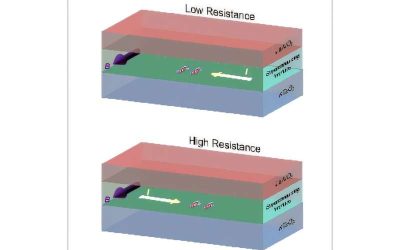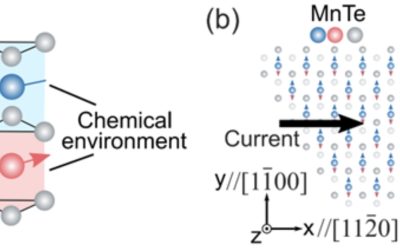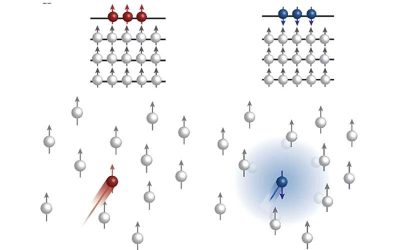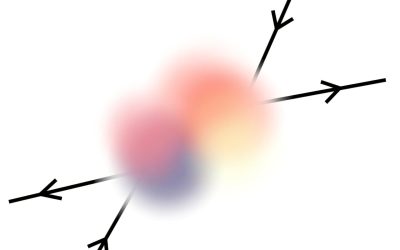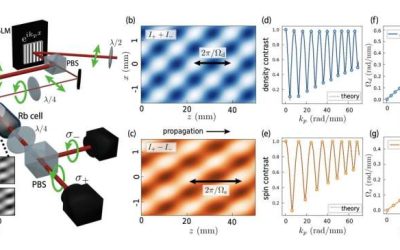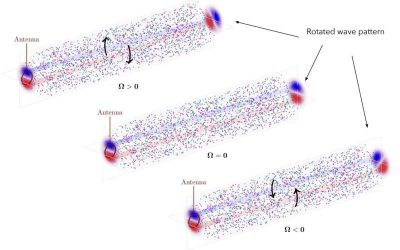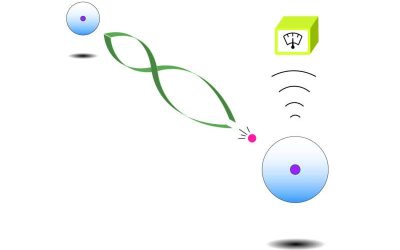Synthetic antiferromagnets are carefully engineered magnetic materials made up of alternating ferromagnetic layers with oppositely aligned magnetic moments, separated by a non-magnetic spacer. These materials can display interesting magnetization patterns,...
Physics
The first observation of a giant nonlinear Nernst Effect in trilayer graphene
The generation of electricity from heat, also known as thermoelectric energy conversion, has proved to be advantageous for various real-world applications. For instance, it proved useful for the generation of energy during space expeditions and military missions in...
Greatly enhanced nonreciprocal transport in KTaO₃-based interface superconductors linked to parity mixing
Superconductivity is an advantageous property observed in some materials, which entails the ability to conduct electricity without resistance below specific critical temperatures. One particularly fascinating phenomenon observed in some unconventional superconductors...
A promising pathway for the electrical switching of altermagnetism
The ability to switch magnetism, or, in other words, to change the orientation of a material's magnetic moments, using only electricity, could open new opportunities for the efficient storage of data in hard drives and other magnetic memory devices. While the...
A new mechanism to realize spin-selective transport in tungsten diselenide
Spintronics are promising devices that work utilizing not only the charge of electrons, like conventional electronics, but also their spin (i.e., their intrinsic angular momentum). The development of fast and energy-efficient spintronic devices greatly depends on the...
The KATRIN experiment sets new constraints on general neutrino interactions
Neutrinos are elementary particles that are predicted to be massless by the standard model of particle physics, yet their observed oscillations suggest that they do in fact have a mass, which is very low. A further characteristic of these particles is that they only...
Quantum battery model achieves theoretical speed limit, demonstrates genuine advantage
Over the past few years, researchers have developed various quantum technologies, alternatives to classical devices that operate by leveraging the principles of quantum mechanics. These technologies have the potential to outperform their classical counterparts in...
Scientists provide clear observation of spin and density modes in a two-component fluid of light
Recent physics studies have found that light can sometimes flow in unexpected ways, behaving like a so-called "superfluid." Superfluids, such as ultracold atomic gases or helium-4 below specific temperatures, are phases of matter characterized by flowing behavior with...
Physicists observe image rotation in plasma
Light sometimes appears to be "dragged" by the motion of the medium through which it is traveling. This phenomenon, referred to as "light dragging," is typically imperceptible when light is traveling in most widely available materials, as the movement is significantly...
An approach to realize heralded photon storage in a Rydberg superatom
Quantum technologies, systems that operate leveraging quantum mechanical effects, have the potential to outperform classical technologies in some specific tasks. Over the past decades, some researchers have also been trying to realize quantum networks, systems...

